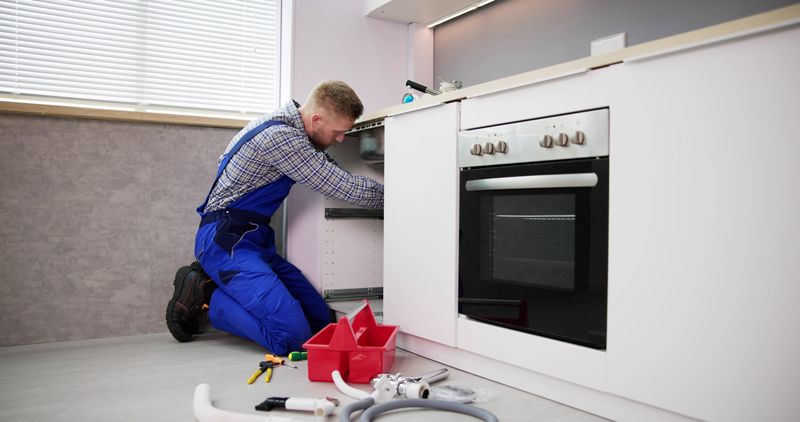New Homeowners: Ways to Manage Bathroom Plumbing
New Homeowners: Ways to Manage Bathroom Plumbing
Blog Article
The article in the next paragraphs on the subject of Smart Plumbing Tips for New Homeowners is exceptionally intriguing. Don't skip it.

For brand-new homeowners, understanding and preserving shower room plumbing can save both money and time by preventing costly problems down the line. Here are some important restroom pipes suggestions to aid you keep whatever running smoothly.
Acquaint Yourself with the Main Shut-Off Valve
Recognizing where the primary water shut-off shutoff is located in your house is critical. This allows you to rapidly shut off the water in case of major leaks or during plumbing emergency situations, preventing considerable water damages.
Regularly Check for Leakages
Small leakages can cause huge troubles. Regularly examine under sinks, around bathrooms, and near pipes fixtures for any type of indications of leakages. Seek moisture, small drips, or corrosion. Catching and repairing leakages early can stop a lot more serious damage and save water.
Don't Neglect Slow Drains Pipes
If your sink or tub is draining pipes slowly, it's commonly an indicator of a clog developing. Resolving this very early can stop a complete clog. Make use of a plunger or a plumber's snake to clean out debris. Stay clear of making use of chemical drainpipe cleaners as they can harm your pipes in time.
Know What Not to Flush
Commodes are not garbage disposals. Stay clear of purging anything other than toilet tissue and human waste. Things like wipes, womanly health items, and cotton swabs should be taken care of in the trash to avoid clogs and drain back-ups.
Install Strainers in Drains
Area filters in your sink and tub drains to catch hair and various other particles before they enter your pipes system. Cleaning up the filters on a regular basis will help stop build-up and maintain water streaming freely.
Keep Your Hot Water Heater
Guarantee your water heater is set to a suitable temperature level (normally around 120 levels Fahrenheit) to prevent hot and reduce power usage. Flush the tank every year to eliminate debris build-up, which can reduce the effectiveness and lifespan of your heating unit.
Upgrade Your Components
If your home has older fixtures, take into consideration updating to extra effective models. Modern toilets, showerheads, and taps are designed to make use of much less water while offering great pressure, which can substantially decrease your water costs and environmental footprint.
Be Cautious with Do It Yourself Plumbing Repair Works
While it's appealing to take care of all home repairs by yourself, beware with plumbing. Some problems might need specialist knowledge, specifically if they involve main water lines or drain repairs. Hiring a professional can often be extra affordable than do it yourself, specifically if it prevents further damage.
Get Ready For Cold Weather
Safeguard your pipes from freezing throughout winter by shielding pipelines in unheated locations like basements, attics, and garages. Throughout extreme cold, let cold water drip from faucets served by revealed pipes to aid avoid freezing.
Set Up Regular Maintenance
Consider scheduling yearly assessments with a qualified plumber. They can identify problems that you may miss out on, such as surprise leakages or wear and tear on pipes and components. Routine upkeep helps prolong the life of your pipes system and can prevent emergency situations.
Conclusion
Comprehending and keeping your home's bathroom plumbing can avoid several common issues. By complying with these essential suggestions, you can ensure your bathroom remains practical and effective, saving you time and money over time.
Essential Plumbing Tips for Homeowners: Keep Your Pipes Flowing Smoothly
As a homeowner, understanding the basics of your plumbing system can save you time, money, and a lot of headaches. Plumbing issues can range from minor annoyances like dripping faucets to major problems like burst pipes that cause significant damage. This guide provides essential tips to help you maintain your plumbing system and tackle common issues.
Understanding Your Plumbing System
Supply System: Brings fresh water into your home from a municipal source or a well. Drain-Waste-Vent System: Removes wastewater and vents sewer gases outside. Fixtures and Appliances: Includes sinks, toilets, showers, dishwashers, and washing machines. Basic Maintenance Tips
Regular Inspections: Periodically check for leaks, corrosion, and other signs of wear and tear. Look under sinks, around toilets, and near water heaters. Know Your Main Shut-Off Valve: In case of a major leak, you’ll need to shut off the water quickly. Ensure everyone in your household knows where the main shut-off valve is located. Prevent Frozen Pipes: In cold climates, insulate exposed pipes and let faucets drip during extreme cold to prevent freezing. Use Strainers: Install strainers in sinks and tubs to catch hair, food particles, and other debris that can cause clogs. Common Plumbing Issues and Solutions
Clogged Drains:
Prevention: Avoid pouring grease down the drain and use drain screens to catch debris. DIY Fix: Use a plunger or a plumbing snake to clear minor clogs. For stubborn clogs, a mixture of baking soda and vinegar can sometimes help. Leaky Faucets:
Prevention: Replace washers and seals regularly. DIY Fix: Turn off the water supply, disassemble the faucet, and replace worn parts.

Get A Free Estimate Report this page